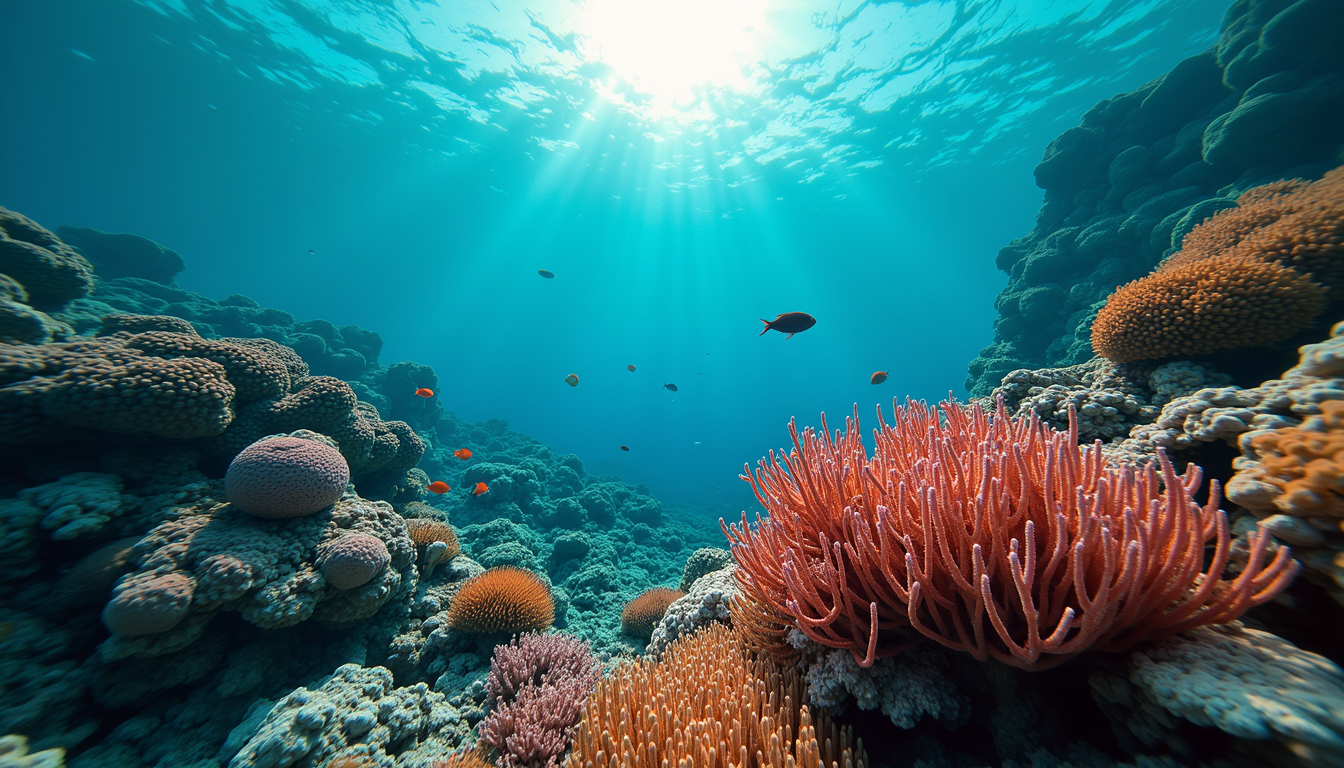Coral reefs are often called the "rainforests of the sea" because they host a rich diversity of marine life and provide crucial benefits to both ecosystems and human societies. However, climate change is wreaking havoc on these vital structures. Rising ocean temperatures and increasing acidification are damaging coral health and formation. Surprisingly, recent studies indicate that as coral reefs decline, the ocean may absorb more carbon dioxide. This unexpected outcome has significant implications for global carbon dynamics that need to be addressed.
Understanding Coral Reefs and Their Importance
Coral reefs play an essential role in marine ecosystems. They provide habitats for over 25% of all marine species, despite covering less than 1% of the ocean floor. Additionally, coral reefs protect coastlines from erosion, support tourism, and enable fishing industries that generate billions of dollars annually. For example, the Great Barrier Reef contributes around $6.4 billion to the Australian economy through tourism alone.
Unfortunately, these ecosystems face serious threats. An estimated 70% of coral reefs are at risk due to climate change, pollution, and ocean acidification. Coral bleaching occurs when corals expel the algae they rely on for food. This phenomenon has been observed globally, leading to significant biodiversity loss and economic repercussions for coastal communities.
The Current Climate Change Scenario
Climate change is accelerating, bringing conditions that threaten coral reefs. Ocean temperatures could rise by up to 2 degrees Celsius by the end of the century, exceeding the tolerable limits for many coral species. Additionally, ocean acidification is reducing the availability of calcium carbonate, a vital component necessary for coral skeleton formation. Projections indicate that coral ecosystems could collapse in as few as 30 years if current trends persist.
Despite these alarming trends, researchers are uncovering a surprising connection between coral reef loss and the carbon cycle. As coral reefs decline, oceans may become more effective at absorbing carbon dioxide, transforming the marine environment's role in climate regulation.
The Mechanisms Behind Increased Carbon Absorption
As coral reefs degrade, the surrounding waters become less saturated with calcium carbonate. This shift allows greater concentrations of carbon dioxide to dissolve in the seawater. When this occurs, bicarbonate ions are formed, enhancing the ocean's capacity to act as a carbon sink. Consequently, while the loss of coral reefs is undeniably harmful, it may result in the oceans being more equipped to sequester carbon than before.
The shift from thriving coral ecosystems to algal-dominated environments alters ocean dynamics in ways that are not fully understood at this point. Understanding these changes is crucial for grasping future climate impacts.
Implications for Climate Models
Most climate models have not considered this emerging phenomenon, which focuses primarily on the negative consequences of coral loss. By acknowledging the potential for increased ocean carbon absorption due to coral reef decline, scientists can create more accurate climate projections.
For instance, traditional models predict a 4-5 degree Celsius increase in global temperatures could result in a significant decline in coral reefs, yet do not account for the increased carbon capture that might alleviate some effects. Integrating new data can better inform policymakers and conservationists in planning effective responses to climate change.
The Bigger Picture: Balancing Conservation and Adaptation
The potential for oceans to absorb more carbon in the absence of coral reefs may seem advantageous, but it raises crucial ethical and ecological questions. While this temporary solution could mitigate atmospheric carbon temporarily, losing coral reefs will result in severe biodiversity loss and destabilize marine ecosystems.
Active conservation efforts are vital for protecting remaining coral ecosystems. Strategies include reducing greenhouse gas emissions, implementing better coastal management practices, and investing in coral restoration projects. Community-based initiatives that engage local populations in conservation can have lasting impacts. For example, in the Caribbean, involving fishermen in coral rehabilitation has shown positive results.
Coral Conservation
As we explore the unexpected link between coral reef degradation and carbon absorption, the implications reach beyond marine biology. While there may be some potential advantages in terms of carbon capture from declining reefs, it emphasizes the urgent need to act against coral loss.
The complexity of this issue demands a holistic approach to climate action, highlighting the need for emission reductions alongside efforts to preserve biodiversity. Protecting coral reefs should remain a top priority, and finding a balance between recognizing unexpected benefits while advocating for conservation is critical in addressing climate change. Every action counts, and our response time is limited.





